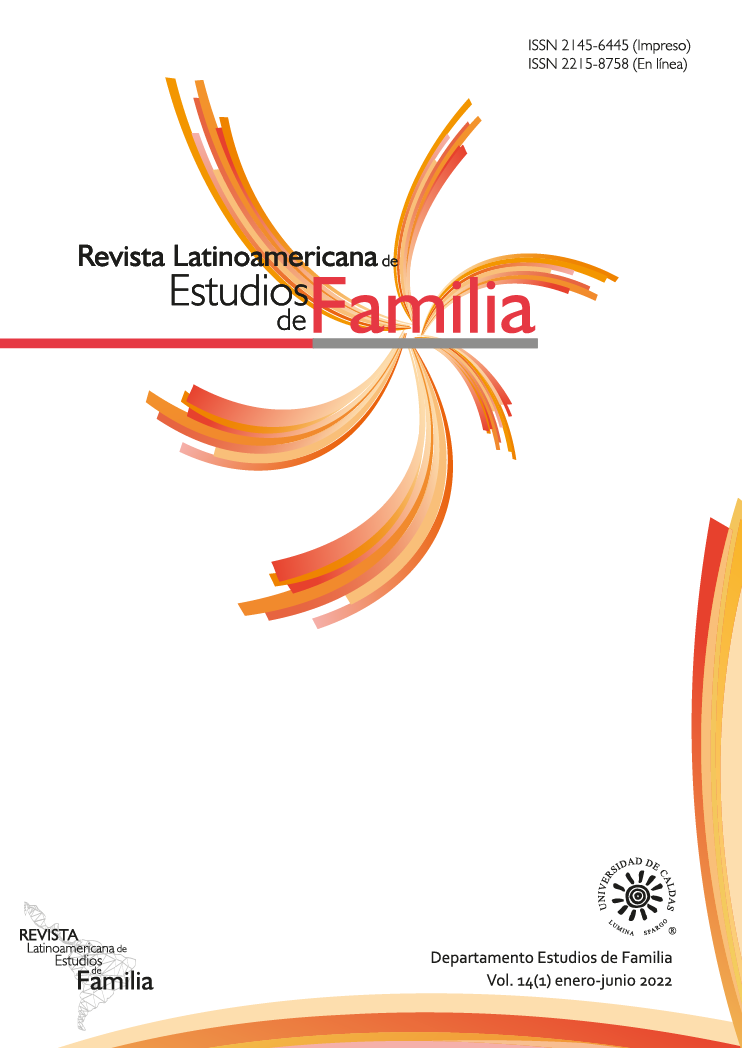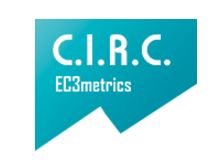Authors
Abstract
Abstract: The objective of this paper is to analyze the socio-family aspects affecting mental health in Social Work students of the Fundación Universitaria Juan de Castellanos during the confinement caused by Covid-19. Regarding the methodology, a descriptive study was carried out with a sample of 119 students. The instruments used were a socio-family characterization questionnaire, the Suicide Risk questionnaire, the family Apgar test, and the SRQ. The results show that university students present mental health conditions due to symptoms of depression and anxiety, in addition to difficulties due
to academic activities and confinement. The role of the family is highlighted as a protective factor against the pandemic. An adequate family functioning is perceived by the students when they have coping strategies against crises. However, it is necessary to strengthen the response capacity for accompanying university students and families with higher level of vulnerability.
References
Cao, W., Fang, Z., Hou, G., Han, M., Xu, X., Dong, J., & Zheng, J. (2020). The psychological impact of the COVID-19 epidemic on college students in China. Psychiatry Research, 112934. https://doi.org/10.1016/j.psychres.2020.112934
Chaney, C. (2020). Family stress and coping among African Americans in the age of COVID-19. Journal of Comparative Family Studies, 51(3-4), 254-273. http://dx.doi.org/10.3138/jcfs.51.3-4.003
Cerón, G. G. R. (2021). Estrategias de aprendizaje a distancia durante la pandemia del Covid-19 en México: Una propuesta desde la enseñanza universitaria en ciencias de la salud. Revista de Educación a Distancia (RED), 21(65). https://doi.org/10.6018/red.456231
Cobo-Rendón, R., Vega-Valenzuela, A., & García-Álvarez, D. (2020). Consideraciones institucionales sobre la Salud Mental en estudiantes universitarios durante la pandemia de Covid-19. CienciAmérica, 9(2), 277-284. http://dx.doi.org/10.33210/ca.v9i2.322
Gómez, F., & Ponce, E. (2010). Una nueva propuesta para la interpretación de Family APGAR (versión en español). Aten Fam. 2010, 17(4), 102-106. https://www.medigraphic.com/pdfs/atefam/af2010/af104f.pdf
Guessoum, S. B. (2020). Adolescent psychiatric disorders during the COVID-19 pandemic and lockdown. Psychiatry Research, 291, 113264. https://doi.org/10.1016/j.psychres.2020.113264
Hernández, A. C. (22 julio de 2020). Estudio muestra impactos de la cuarentena en la salud mental de los colombianos. El País. https://www.elpais.com.co/salud/estudio-muestra-impactos-de-lacuarentena-en-la-mental-de-los-colombianos.html
Longobardi, C., Morese, R., & Fabris, M. A. (2020). COVID-19 emergency: social distancing and social exclusion as risks for suicide ideation and attempts in adolescents. Frontiers in psychology, 11. https://doi.org/10.3389/fpsyg.2020.551113
López, G., Bayarri, M., & Llamazares, G. (2020). Suicidio en pandemia. Redacción Médica. https://www.redaccionmedica.com/opinion/suicidio-en-pandemia-5969
Lozano-Vargas, Antonio. (2020). Impacto de la epidemia del Coronavirus (COVID-19) en la salud mental del personal de salud y en la población general de China. Revista de Neuro-Psiquiatría, 81(1), 51-56. https://dx.doi.org/10.20453/rnp.v83i1.3687
Maia, B. R., y Díaz, P. C. (2020). Ansiedade, depressão e estresse em estudantes universitários: o impacto da COVID-19. Estudos de Psicologia (Campinas), 37, e200067. http://dx.doi.org/10.1590/1982-0275202037e200067
Nicolás, P. (2020). Centro Reina Sofia sobre adolescencia y juventud.
https://www.adolescenciayjuventud.org/blog/novedades-bibliograficas/jovenes-y-adolescentes-ante-el-impacto-del-covid-19-delriesgo-a-la-emergencia-social/
Oliver, N., Barber, X., Roomp, K. y Roomp, K. (2020). The Covid19 Impact Survey: Assessing the pulse of the COVID-19 pandemic in Spain via 24 questions. https://arxiv.org/abs/2004.01014
Organización Mundial de la Salud (OMS). (1994). A user´s guide to the self-reporting questionnaire (SRQ). https://apps.who.int/iris/bitstream/handle/10665/61113/WHO_MNH_PSF_94.8.pdf;jsessionid=2E94E5011F84C0C0D72D666892D1536B?sequence=1
Ortiz, E. I., Herrera Castañeda, E., y De La Torre, A. (2020). Coronavirus (COVID 19) Infection in Pregnancy. Colombia Médica, 51(2), e-4271. https://doi.org/10.25100/cm.v51i2.4271
Ozamiz-Etxebarria, N., Dosil-Santamaria, M., Picaza-Gorrochategui, M., y Idoiaga-Mondragon, N. (2020). Niveles de estrés, ansiedad y depresión en la primera fase del brote del COVID-19 en una muestra recogida en el norte de España. Cadernos de Saúde Pública, 36(4), e00054020. https://doi.org/10.1590/0102-311X00054020
Ramírez Cerón, G. G. (2021). La familia y el juego como estrategia de aprendizaje a distancia durante la pandemia del Covid-19 en México: Una propuesta desde la enseñanza universitaria en ciencias de la salud. Revista de Educación a Distancia (RED), 21(65). https://doi.org/10.6018/red.456231
Salari, N., Hosseinian-Far, A., Jalali, R., Vaisi-Raygani, A., Rasoulpoor, S., Mohammadi, M., Rasoulpoor, S., & Khaledi-Paveh, B. (2020). Prevalence of stress, anxiety, depression among the general population during the COVID-19 pandemic: a systematic review and meta-analysis. Globalization and health, 16(57). https://dx.doi.org/10.1186%2Fs12992-020-00589-w
Sanabria-Mazo, J., Riaño-Lara, V., Rojas Gómez, J. S., Carmona, M., Méndez Ulrich, J. L., Feliu-Soler, A., Mateo Canedo, C., & Sanz, A. (2020). Efectos en la salud mental de la población colombiana durante la pandemia del COVID-19. http://dx.doi.org/10.13140/RG.2.2.33334.52805/4
Sandín, B., Valiente, R. M., García-Escalera, J., & Chorot, P. (2020). Impacto psicológico de la pandemia de COVID-19: Efectos negativos y positivos en población española asociados al periodo de confinamiento nacional. Revista de Psicopatología y Psicología Clínica, 25(1). https://doi.org/10.5944/rppc.27569
Torales J, O’Higgins M, Castaldelli-Maia J.M., & Ventriglio A. The outbreak of COVID-19 coronavirus and its impact on global mental health. International Journal of Social Psychiatry, 66(4), 317-320. https://doi.org/10.1177/0020764020915212
UNESCO. (2020, 13 mayo). COVID-19 y educación superior: De los efectos inmediatos al día después.
http://www.iesalc.unesco.org/wp-content/uploads/2020/05/COVID-19-ES-130520.pdf
UNICEF. (17 Abril de 2020). Noticias o información falsa sobre el Coronavirus 2019 (COVID-19).
UNICEF Colombia. https://www.unicef.org/colombia/historias/noticias-o-informacion-falsasobre-coronavirus-2019-covid-19
Valdivieso, M., Burbano, V., Burbano, A. (2020). Percepción de estudiantes universitarios colombianos sobre el efecto del confinamiento por el coronavirus, y su rendimiento académico. Espacios, 42(41), 270–281. https://www.revistaespacios.com/a20v41n42/a20v41n42p23.pdf
Varma, P., Junge, M., Meaklim, H., & Jackson, M. L. (2021). Younger people are more vulnerable to stress, anxiety and depression during COVID-19 pandemic: A global cross-sectional survey. Progress in Neuro-Psychopharmacology and Biological Psychiatry, 109, 110236. https://doi.org/10.1016/j.pnpbp.2020.110236
Vásquez, G., Urtecho-Osorto, Ó. R., Agüero-Flores, M., Martínez, M. J. D., Paguada, R. M., Varela, M. A., Landa-Blanco, M. & Echenique, Y. (2020). Salud mental, confinamiento y preocupación por el coronavirus: Un estudio cualitativo. Revista Interamericana de Psicología, 54(2), e1333. https://doi.org/10.30849/ripijp.v54i2.1333
Velavan, T. P. & Meyer, C. G. (2020). La epidemia de COVID-19. Tropical Medicine & International Health, 25(3). https://doi.org/10.1111/tmi.13383
Wang, C., Pan, R., Wan, X., Tan, Y., Xu, L., Ho, C. S. y Ho, R. C. (2020). Immediate psychological responses and associated factors during the initial stage of the 2019 Coronavirus disease (COVID-19) epidemic among the general population in China. International Journal of Environmental Research and Public Health, 17(5), 1729. https://doi.org/10.3390/ijerph17051729

 PDF (Español)
PDF (Español)
 FLIP
FLIP


























